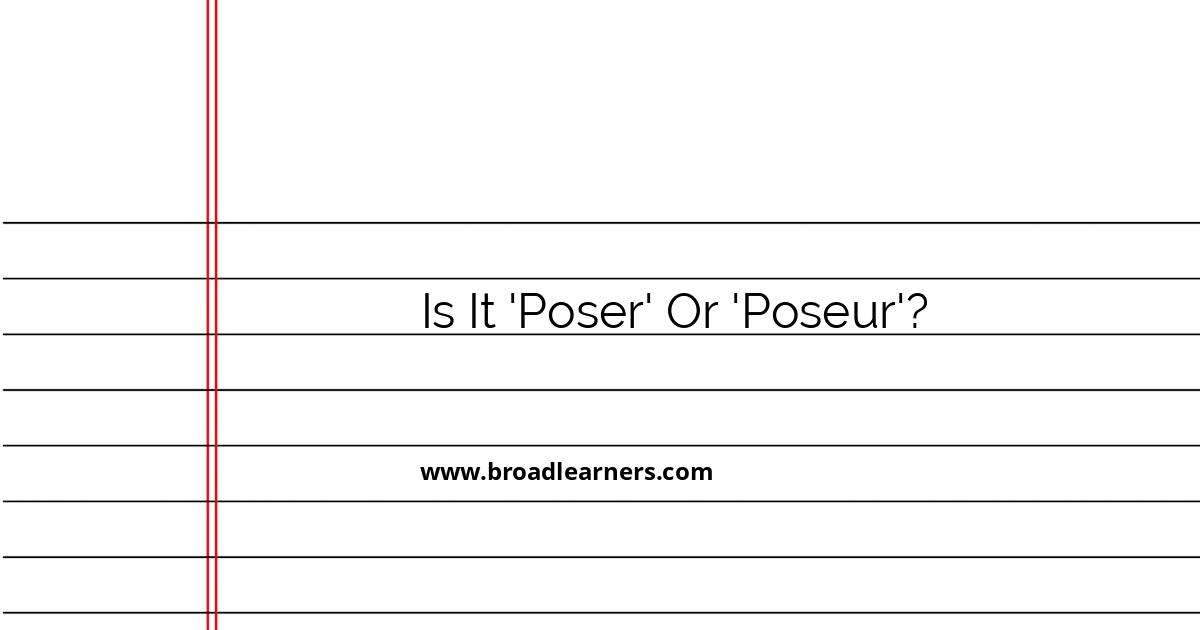Both 'poser' and 'poseur' are English words used to describe individuals, but they have nuanced differences in meaning and origin. Understanding these differences can help ensure proper usage in a variety of contexts. In this article, we will explore the distinct definitions of 'poser' and 'poseur', their origins, and provide examples for clarity.
Definition and Origins
- Poser
-
The word 'poser' is an informal term primarily used in British English, which generally refers to a person who adopts certain behaviors or styles to impress others. A poser might act in a way that is not authentic to gain attention or approval.
Origin: Derived from the verb 'pose,' poser first appeared in the early 19th century and was initially synonymous with someone who poses, as in an artist's model. Over time, it evolved in slang usage to describe someone putting on an act or façade.
- Poseur
-
The word 'poseur' is borrowed from French, and it refers to someone who pretends to be something they are not. This term is often used to describe individuals who are perceived as pretentious or insincere.
Origin: Poseur entered the English language through French in the late 19th century. It maintains its French spelling and implies a more negative connotation compared to 'poser,' emphasizing the artificial nature of the individual's behaviors or claims.
Usage Examples
Let's consider examples to better understand how these terms are used in sentences:
Example Sentences
- 'Poser' Usage Example:
Emily was often called a poser for buying a skateboard she couldn't ride, just to fit in with a group of avid skaters.
In this context, Emily is labeled as a 'poser' because she is adopting behaviors - owning a skateboard - to appear connected to a certain group, despite not truly sharing in their activity.
- 'Poseur' Usage Example:
Jonathan was considered a poseur among the art critics for his verbose yet superficial critiques, speaking more for effect than meaningful insight.
Here, Jonathan is described as a 'poseur' because his manner of speaking is pretentious and lacking genuine knowledge or experience, which underscores the inauthentic nature of his character.
Conclusion
While both 'poser' and 'poseur' describe individuals who are not authentic, 'poseur' is typically used to denote a more deliberate and pretentious insincerity. Understanding and utilizing these words accurately can enrich your communication style by allowing you to pinpoint and describe different nuances of behavior more precisely.

Did I miss anything? Respond below